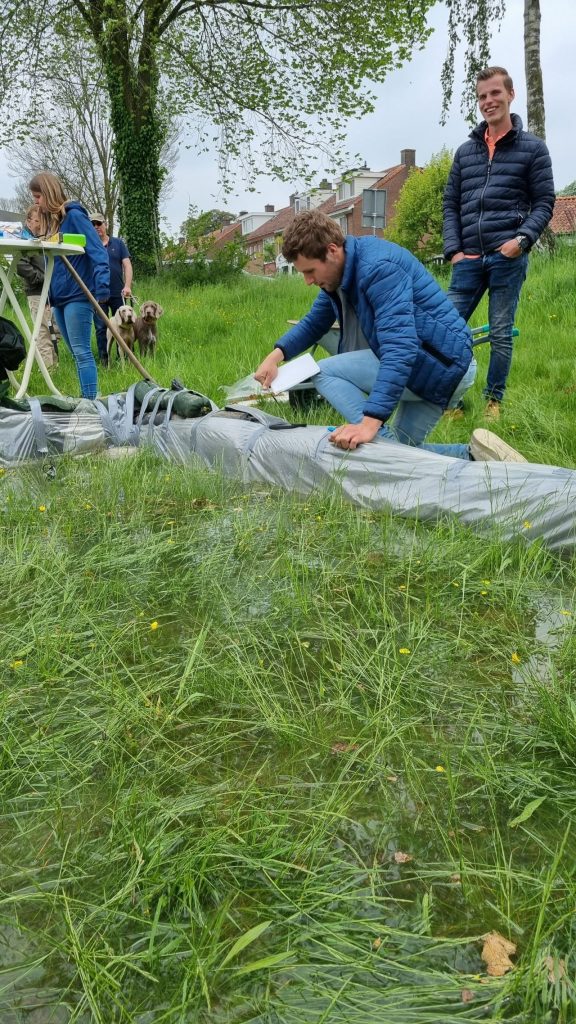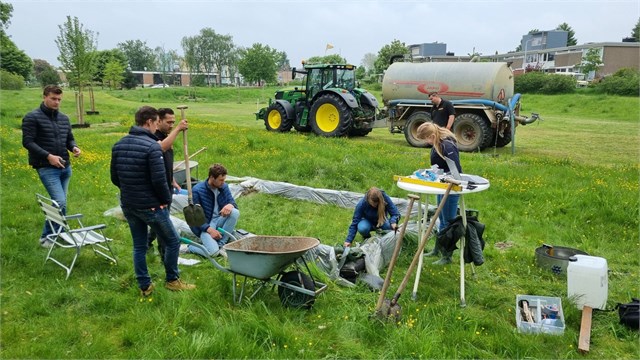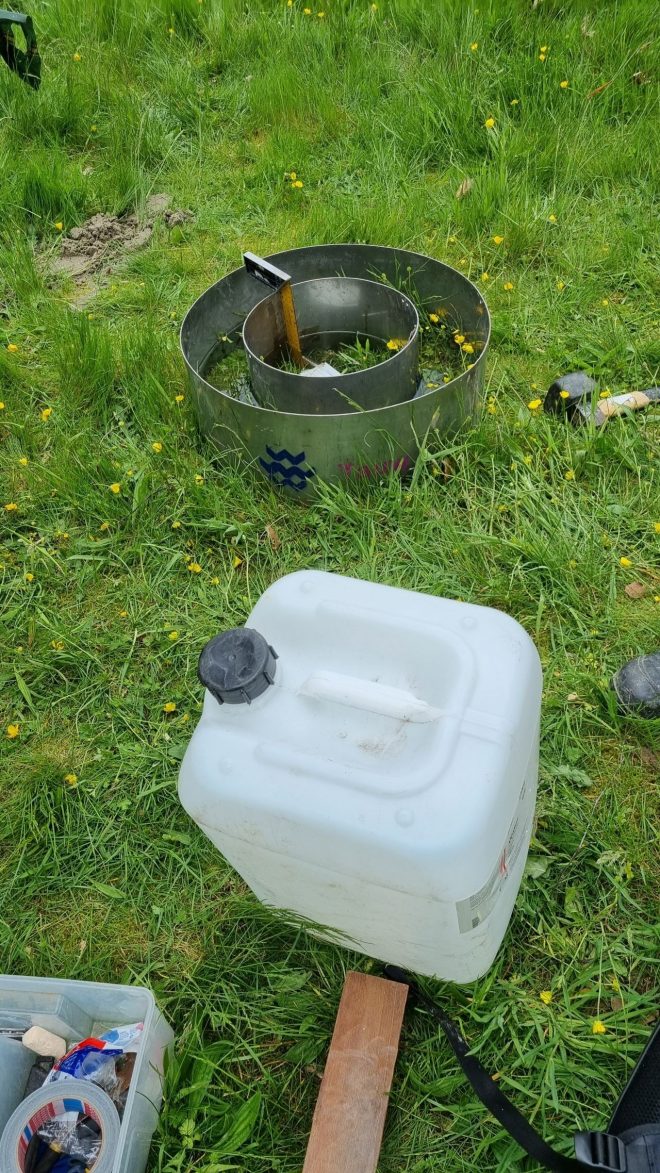(for Dutch scroll down)
As announced in our weekly ClimateCafe GreenBlue, testing of Sustainable Urban Drainage Systems as bio swales will be tested in Nijmegen. Climatecafe Nijmegen was planned in May 2023 for research the long term efficiency of climate adaptation measures that are previously mapped on climatescan.org. Unique is a small set up with participation of several (applied) universities Radboud, HUAS Groningen with the Deltares, spearheaded by the municipality of Nijmegen.

Results: a high number of climate adaptation measures are mapped on climatescan.org and the unsaturated and saturated performance of bio swales will be tested (with infiltrometer test instead of full scale tests) which where implemented more than 5-20 years ago. Special attention is given to the bio diversity of the bio-swales. The results are the backbone of a new maintenance program for the municipality that can be used on (inter)national scale for a better understanding of the required maintenance for a long term efficiency of Sustainable Urban Drainage Systems.
In Dutch: Mei 2023 heeft de gemeente Nijmegen samen met de Hogeschool Van Hall Larenstein, Hanze, Sweco en Tauw een ClimateCafe uitgevoerd naar groenblauwe infiltratie voorzieningen. We hebben onderzoek gedaan naar de infiltratiecapaciteit en zuiverende werking van de bodem in wadi’s. Hierbij spelen vele factoren en zijn verschillende meetmethoden gebruikt. Bij dit climatecafe waren zoals gebruikelijk verschillende publieke en private organisaties en studenten met verschillende disciplines van verschillend hogescholen en universiteiten betrokken.
Studenten van de hogeschool hebben het infiltratieonderzoek voor de gemeente Nijmegen uitgevoerd, waarbij gekeken is naar de karakterestieken van de wadis en omgeving, zoals bomen en betreding. Full-scale proeven zijn uitgevoerd en data met studenten geanalyseerd. De infiltrerende werking van de infiltratievoorziening is in kaart gebracht waarbij geconcludeerd is dat alle wadi’s goed het water bergen en infiltreren en ruim aan de norm voldoen (leeg binnen 48 uur). Ook de kwaliteit van de wadibodem is bepaald om een indruk te krijgen in de zuiverende wering van de bodem en te toetsen of de bodemkwaliteit voldoet aan de norm en mogelijke overschrijdingen te relateren aan omgevingsfactoren (exploratief onderzoek). Er zijn StoryMaps en Dashboards gemaakt waar de resultaten en het onderzoek zelf gemakkelijk geraadpleegd worden. ClimateCafes kenmerken zich niet alleen in participatie maar ook in open source delen van informatie zoals op tools als ClimateScan.nl.

Conclusies
Het onderzoek en de resultaten geven de gemeente en partners direct inzicht in het functioneren van infiltratievoorzieningen. De wadi’s werken over het algemeen goed, zelfs wanneer er lokale achteruitgang is door bijvoorbeeld betreding. In de toekomst worden nieuwe locaties voor onderzoek aangewezen en de resultaten worden in wetenschappelijke tijdschriften gepubliceerd.
more info about ClimateCafe coordinator Sidney Jon Stax:
As an aquatic ecological and technical water manager Sidney has a broad experience local and regional greenblue management, civil engineering, ecological systems, GIS, and biochemical processes. Not surprisingly Sidney focuses on integral processes and knowledge development for his city Nijmegen and beyond. “A phone-call on a typical work day can be about a citizen in need of help with water problems in his street, while the next phone call can be from the ministries to talk about policy on climate adaptation”. Even though he mostly works in the field of application and management, scientific research is still in his blood. Therefore Sidney is working on scientific research on bluegreen and sewer climate adaptation measures (including supervision of internships). How do greenblue systems work on long periods and how can they function optimal in an ever changing, semi-crowded city as Nijmegen where both drought and to much water are challenges that needs to be asserted? Sidney is also part of several other knowledge platforms (Invasive Lobsters and climate change, COP-wave Infiltration pavement and Spiegelwaal warning systems) and regular works with students from colleges and universities.
